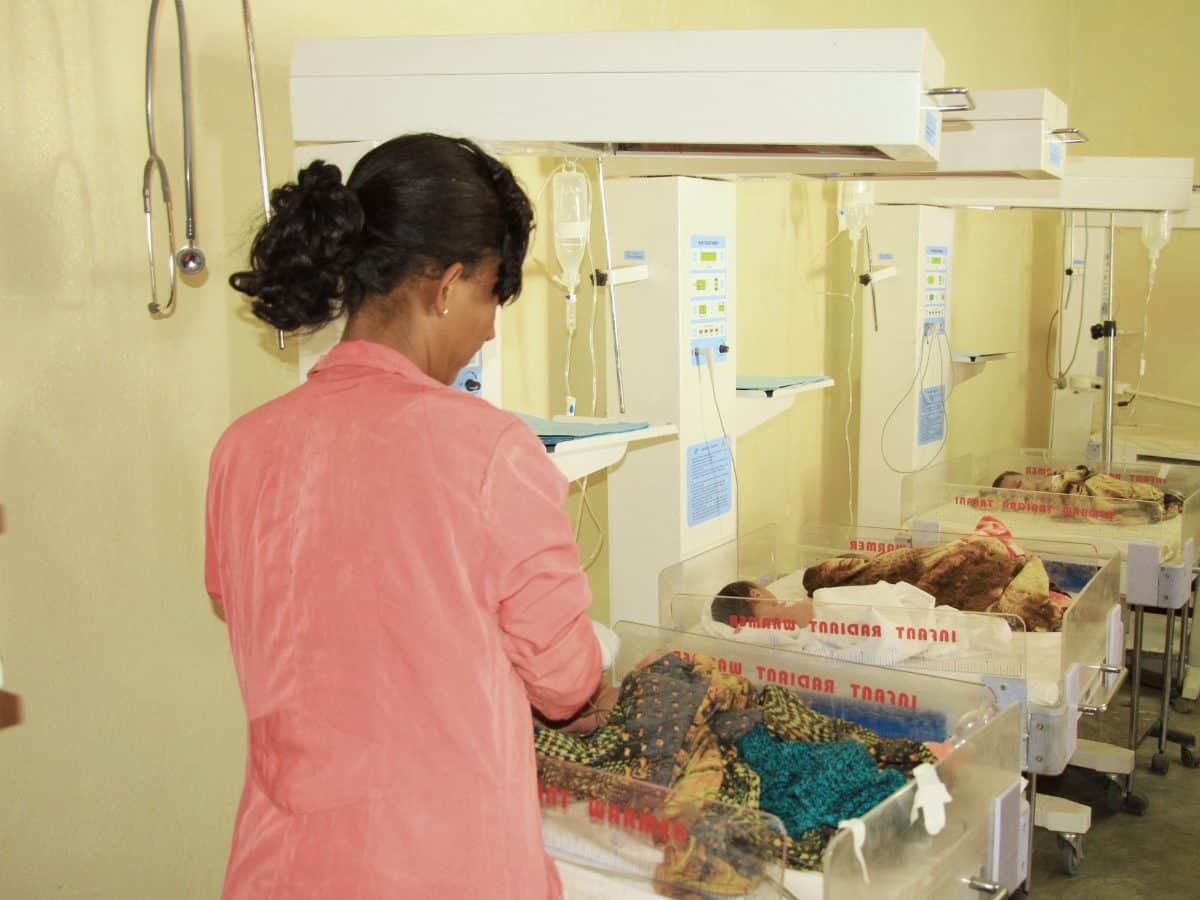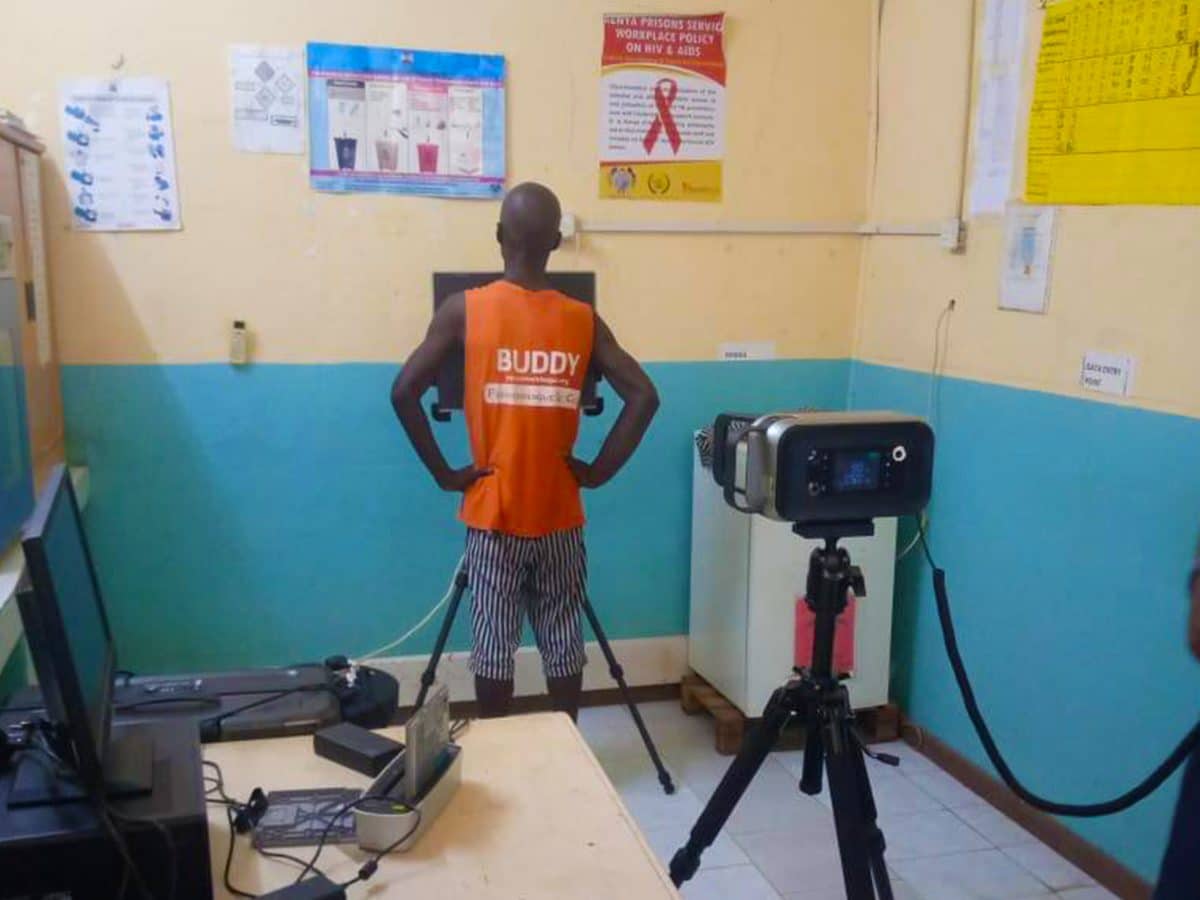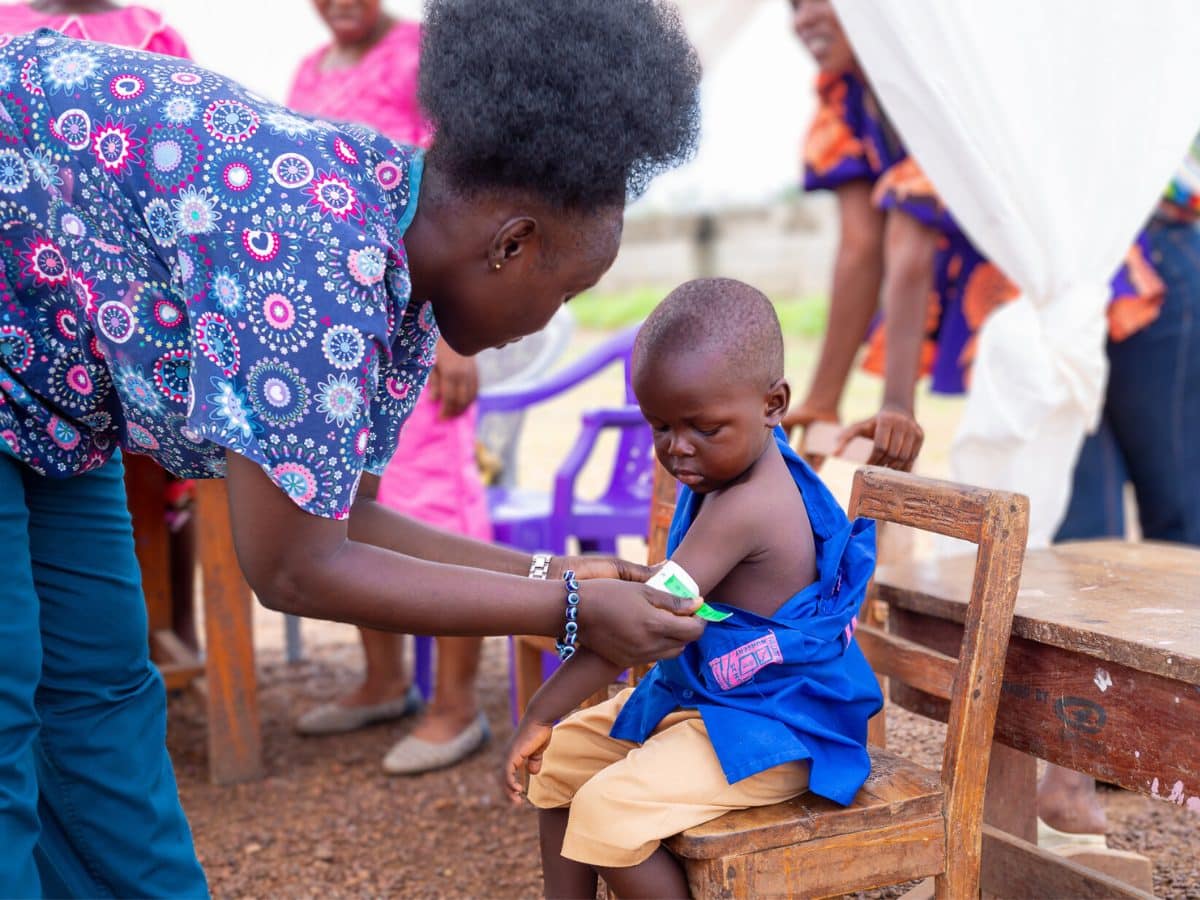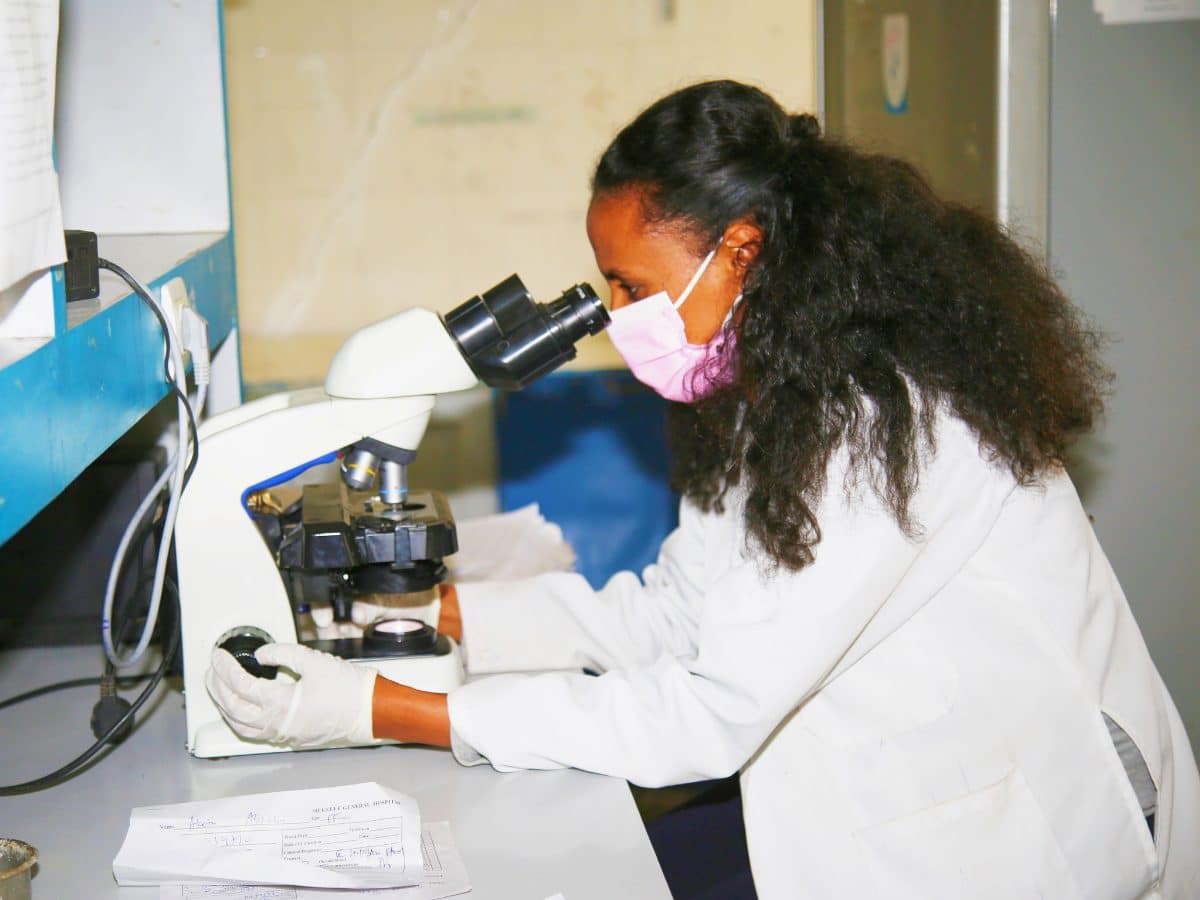“My happiness comes if the baby of the mother I am following is HIV-negative after 18 months,” said Angelina Doki.
Doki is a mentor mother in Juba, the capital and largest city of South Sudan. As a mother and person living with HIV, Doki understands how crucial it is to maintain anti-retroviral treatment (ART) to improve her own health as well as to prevent mother-to-child transmission (PMTCT) of HIV.
In a program funded by the U.S. President’s Emergency Plan for AIDS Relief (PEPFAR) through the Centers for Disease Control and Prevention (CDC), ICAP at Columbia University supports mentor mothers in South Sudan to provide critical health care linkages to pregnant women living with HIV.
Every week, mentor mothers visit the homes of pregnant women living with HIV to conduct health education, provide breastfeeding support, follow up with mothers who have interrupted ART, and monitor viral loads. Mentor mothers help track sexual contacts for HIV testing, children of mothers living with HIV for index testing, HIV-exposed infants for early infant diagnosis (EID) testing, and HIV-infected infants for early initiation on ART.
“I help HIV-positive mothers to deliver at the nearest hospital,” added Doki, “and provide adherence support to take medicine regularly in order to reduce viral load and stop it [HIV] from crossing to infect the unborn baby. I follow mothers and remind them to take their babies to the hospital for sample collection at 6 weeks and nine months, support mothers to exclusively breastfeed, and go to the facility if there is a wound on the nipple.”
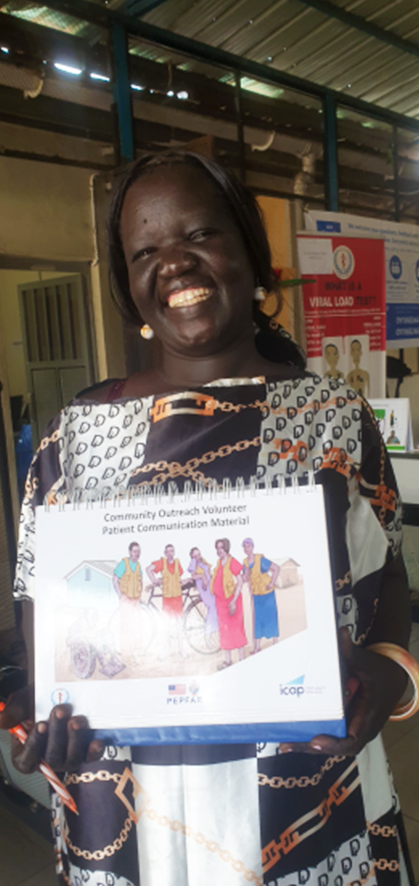
Angelina Doki, mentor mother
Trained by ICAP and the National Empowerment of Positive Women United (NEPWU) – the only network of women and girls living with HIV in South Sudan – mentor mothers not only supply pregnant women with information on the basics of HIV, HIV treatment, and PMTCT, but they also provide counseling, a critical component to combatting stigma and maintaining vital HIV health services.
Mariam Paul, also a mentor mother in Juba, said that maintaining these close relationships with pregnant mothers is key to continuing their care.
“My biggest challenge is some mothers don’t disclose their status to their spouses, so it becomes difficult for them to accept follow-up [visits] at home by mentor mothers,” Paul said. “Some mothers also don’t show up for routine visits for antenatal care, refills, viral sample collection, and delivery at the facility. To overcome this, I must know the homes of every mother assigned to me so that I can easily reach out to them and support.”
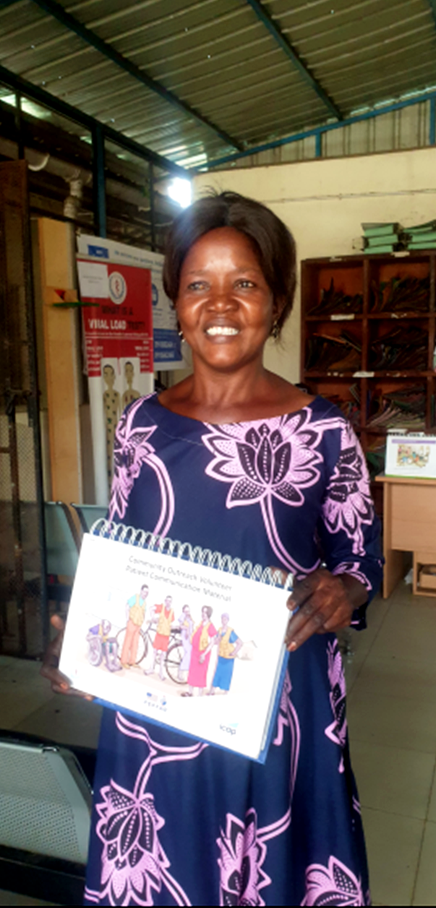
Mariam Paul, mentor mother
Since 2018, the ICAP-supported program has recruited and deployed 115 mentor mothers throughout South Sudan, providing a total of 440 mothers living with HIV with care and treatment. From the start of the program, 466 HIV-exposed infants have been registered in an electronic system to be followed-up with for consistent testing.
Mentor mothers have a range of tools at their disposal to assist them in knowledge-sharing as well as mother and child tracking. Most recently, ICAP and NEPWU worked together to develop a flip chart that mentor mothers use to teach pregnant women about the importance of such practices as viral load monitoring. They also maintain a booklet containing contact information and treatment details that tracks mothers who have interrupted ART.
“The mentor mother program is a crucial service in South Sudan,” said Males Elias, ICAP Adherence and Community advisor in South Sudan. “They are an extended care team in the community and the direct contact a mother needs, who, for a variety of reasons, may not be able to go to a health facility on her own. Mentor mothers improve knowledge about HIV and clarify myths mothers may have heard about their own health. Ultimately, their presence, advice, and care can help mothers feel that their health and the health of their family is safe and secure.”
Due to the success of the program, ICAP is planning to expand the number of mentor mothers being deployed in communities as well as increase the number of pregnant women enrolled in the program. To scale tracking efforts of children exposed to HIV, ICAP and NEPWU are training mentor mothers to collect samples directly from infants instead of asking mothers to bring them to a health facility, which has been a constraint to HIV care and treatment in the past.
About ICAP
A major global health organization that has been improving public health in countries around the world for nearly two decades, ICAP works to transform the health of populations through innovation, science, and global collaboration. Based at Columbia Mailman School of Public Health, ICAP has projects in more than 30 countries and is working side-by-side with ministries of health and local governmental, non-governmental, academic, and community partners to confront some of the world’s greatest health challenges. Through evidence-informed programs, meaningful research, tailored technical assistance, effective training and education programs, and rigorous surveillance to measure and evaluate the impact of public health interventions, ICAP aims to realize a global vision of healthy people, empowered communities, and thriving societies.



